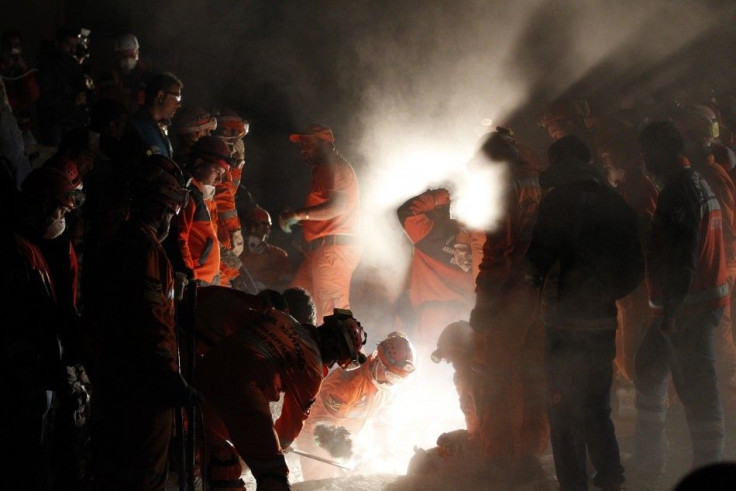As Earthquake Casualties Mount, Focus on Turkey-Israel Relations

The official death toll from the Van, Turkey earthquake last Sunday has risen to over 530 people, but while rescue teams find more bodies and people whose homes were destroyed sleeping outside on snowy nights, the world has turned its attention to the relationship between Turkey and Israel.
In the first two days after the quake, Turkey refused to accept humanitarian aid from Israel, along with a number of other countries, including Greece and Armenia. These three countries have all had historically troubled relationships with Turkey, but ties with Israel have been especially volatile lately.
The Turkey-Israel relationship has been especially strained since nine Turkish nationals were killed on a Gaza-bound flotilla by Israeli forces last year. Geopolitical situations in 2011, including Palestine's United Nations bid and the siege of the Israeli embassy in Egypt, have also put the two countries into opposing corners.
I am under the impression the Turks do not want our help, Israeli Defense Minister Ehud Barak told Channel 2 News on Monday. Right now [their answer] is negative but if they see they need more aid and don't have it, or if they rethink it, we have made the offer and remain prepared [to help].
Turkey did accept Israeli's assistance later in the week, and Israel is sending temporary shelter to the cities of Van and Ercis. But, The Jewish Telegraphic Agency is reporting that diplomatic tension between Turkey and Israel will continue. Trurkish Foreign Minister Ahmet Davutoglu said that political conditions remain between the two nations, and that Ankara will maintain its current position toward Israel.
“We have no prejudice against any country, but just because Israel is helping us does not mean that we will give up on our principled position against the country,” Davutoglu said, according to Today's Zaman.
“We don’t mix humanitarian and political issues. They are different,” Foreign Ministry spokesman Selçuk Ünal told reporters on Wednesday, echoing Davutoglu's statements.
Jordan's King Abdullah II seems to think that the aid controversy is an indication that Israel has lost all but one ally in the Middle East.
You have seen what has happened in Egypt [and] Turkey, Abdullah told The Washington Post this week. We are actually the last man standing with our relationship with Israel.
Because of the loss of Egypt’s political leadership, the rest of us are having to step up, he said. On the Israeli-Palestinian issue, Jordan’s relationship with the Palestinians has had to take a step forward.
Meanwhile, aid from Azerbaijan, Belgium, Egypt, France, Ireland, Israel, Japan, Kazakhstan, Russia, Switzerland, England, Ukraine and the United Nations has either arrived in Turkey or is on its way.
© Copyright IBTimes 2024. All rights reserved.











